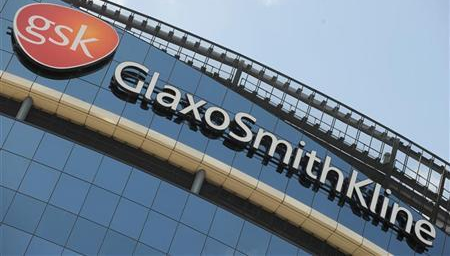GSK Extends Vaccine Commitment in Developing Countries
GSK has increased its commitment to provide vaccines in developing countries, pledging to help protect millions more children against infectious diseases through its partnership with the GAVI alliance.

Under the new agreement, GSK will provide an additional 240 million doses of Synflorix to developing countries over the next ten years, helping to immunise up to 80 million more children against pneumococcal diseases including meningitis and pneumonia. This comes on top of the 480 million doses GSK has already committed to GAVI through the Advance Market Commitment Framework (AMC), designed to give children in the world’s poorest countries access to heavily discounted vaccines.
The AMC has received backing from the governments of Italy, the UK, Canada, Russia, Norway and the Bill and Melinda Gates Foundation, who have so far committed $1.5bn towards accelerating the development of healthcare products for developing nations. The GAVI alliance, a public-private partnership geared towards providing vaccines to low-income countries, claims that without the AMC framework people in these countries would have to wait 10-15 years longer than industrialised nations for pneumococcal vaccines.
GSK provides GAVI with a number of vaccines, including Synflorix for pneumococcal disease; Rotarix for rotavirus, a cause of diarrhoea; Cervarix which protects girls against cervical cancer caused by human papilloma virus; and a combined vaccination which immunises against diphtheria, tetanus, pertussis, hepatitis B and haemophilius influenza type B. The agreement to provide more Synflorix has brought the total number of vaccines GSK is committed to provide up to 850 million doses, which the company claims will help protect 300 million children and adolescent girls in developing countries from the diseases above by 2024.
Pfizer is another company working with the GAVI alliance to provide access to pneumococcal vaccines for patients in developing countries. Pfizer has also updated its agreement with GAVI relating to these drugs; along with GSK, it had previously committed to supply 30 million doses of vaccines each year for a 10 year period, at a cost of $3.50 per vaccine. Pfizer has not updated the agreement and will provide the Prevenar 13 vaccine at a cost of $3.40 per vaccine for 2013 before reducing the price further to $3.30 for the remaining years of the deal.
“Strong vaccination programmes are a cornerstone of economic development – a simple intervention that has dramatic short and long term impact on health,” remarked Susan Silbermann, president, vaccines at Pfizer. “Since first offering Prevenar 13 through the AMC in 2010, we have continued to support this revolutionary public health programme that helps those most in need of potentially lifesaving vaccinations.”
Nonetheless, there has been criticism that the commitments do not go far enough: Medicines Sans Frontières (MSF) claimed that the discount, amounting to 3 per cent, was “meagre.” According to MSF's vaccines policy adviser Kate Elder, “Pfizer and GSK could have offered a much steeper price reduction on the PCV vaccine, given we believe the cost of production is significantly lower than the price, and that the total value of GAVI contracts for PCV already amount to more than $6bn.” She also stated that "Pfizer and GSK are still reaping the benefits of the Advanced Market Commitment subsidy – 73 per cent of the $1.5bn subsidy has been promised to the companies.” Elder revealed that another unnamed pharma firm was planning to offer a pneumococcal vaccine at $2 a dose, although this would not be available for several years.
